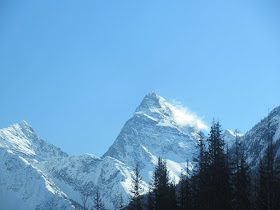As we consider the battles the fledgling American nation endured, we realize that they were motivated by the quest for freedom from tyranny, taxation, and religious oppression. Liberty was the prize sought after at all cost, for as patriot Patrick Henry declared, “Give me liberty, or give me death!” Our Declaration of Independence says that our Creator has given us “unalienable rights” to “life, liberty, and the pursuit of happiness.”
Even more important than political and religious liberty is eternal liberty, which only Jesus Christ can provide. Every born-again believer (John 3:3-8) who has trusted in His death, burial and resurrection (1 Corinthians 15:1-4) as the only Way to Heaven (John 14:6) has liberty from the oppression of sin. In His mercy, God spared His children from eternal death and damnation (Romans 3:25; 6:23). In His grace, He gave us eternal, abundant life with Him and our loved ones who know Him as Lord and Savior (John 3:16; 10:10).
Jesus Christ has forever removed us from the penalty of sin, which is physical, spiritual, and eternal death (Romans 3:25; 6:23) He was the perfect, complete sacrifice, Whose finished, perfect work on the cross was sufficient to pay for all the sins of all mankind, past, present and future (Romans 3:25; 1 John 2:2). When God looks at the born-again believer (John 3:3-8), He no longer sees our sins, but the perfect righteousness of His Son (Romans 3:22,25;5:18).
But does liberty from the penalty of sin entitle us to lawlessness? Because of the curse of sin brought on by Adam’s disobedience, no man can perfectly keep God’s law (Exodus 20:1-17; Romans 3:23). Should we even try? Our society, country and even some churches seem to be marred by permissiveness that often promotes individual liberty over morality and the common good. They have rejected the Creator, Who has turned them over to the consequences of their own sin (Romans 1:28-31).
Followers of Jesus Christ have the freedom of knowing that even when we do sin, we cannot lose our salvation (Romans 8:35-39). We are saved by grace, not by works (Ephesians 2:8-9), and Jesus Christ has freed us from bondage to sin (Hebrews 9:14-15). We can't earn our salvation by being "good" or by not breaking the law (Romans 3:10-12). Given our liberty in Him (Luke 4:18), are we not freed from the law? (Romans 7:4-6)
If we are guilty of breaking even a single point in the law, whether in deed or even in thought, we are considered guilty of breaking the whole law (James 2:10-13). Only One Person could keep the law perfectly, and that is Jesus, Who died and rose again so that we could be freed from sin and death (Hebrews 9:14-15). We still need the law, not for salvation (Romans 3:19-21; Hebrews 7:19), but as a mirror to show us our sin and our need for a Savior (James 1:22-25).
Our liberty in Christ does not give us license to sin, because we are to love God and love one another (Matthew 22:36-40), showing our love by obeying His commandments (John 14:15,21). When asked if we can sin freely so that God’s grace can much more abound, Paul replied, “God forbid!” (Romans 3:31; 6:1-15).
Once we are saved, we should be in the world to spread the Good News of the Gospel (Acts 1:8), but not of the world (John 15:19; 17:14-16). This requires us to be a living sacrifice to Christ (Romans 12:1), set apart from worldly habits, holy as He is holy (1 Peter 1:15-16). Only then can others believe our testimony that Jesus is our Lord Who has redeemed us from sin, for they see proof of it in our lifestyle (2 Peter 3:11).
The greatest fear of the apostle Paul was that he would be a castaway, or put on the shelf and removed from active service to God (1 Corinthians 9:27). Even Paul, arguably the greatest man of faith and Christian service ever to walk the earth, had this fear, and so should we.
Paul was highly sensitive to the potential consequences of his actions. He knew that Christians were no longer bound by the dietary laws of Moses, and that whatever he ate could not jeopardize his salvation. Yet Paul was careful not to do anything that a babe in Christ might perceive as sin, such as eating food known to be offered to idols (1 Corinthians 8:4-13), because that might cause the newly saved to stumble in his Christian walk (Romans 14:13).
Modern day examples might be drinking alcohol, indulging in off-color humor, or attending worldly entertainment. We can do all these without losing our salvation, yet they weaken our testimony to others and even cause them to be discouraged or to fall (2 Peter 3:17). There are consequences for them and for us, because we may lose our health, joy, peace, and opportunities for service.
Every day we must fight the battle between our “old man,” or sin nature, who wants us to fall back in our sinful ways, and the new creation in Christ (2 Corinthians 5:17; Galatians 6:15), who wants us to yield to the Holy Spirit by following and serving Jesus (Romans 6). We can refrain from sin only by yielding to the Holy Spirit within us, Who cannot sin (1 John 3:9).
When we do sin, breaking the commandments in thought or in deed (Matthew 5:28), as we do nearly daily by having a covetous, angry or lustful thought, it is because our old sin nature has momentarily won out over the Spirit (Romans 7:14-25). May we daily put on the whole armor of God (Ephesians 6:11-13) to fight the devil and his traps luring us to lawlessness (1 Timothy 3:6-7), and praise God for the liberty He has given us in Christ!







